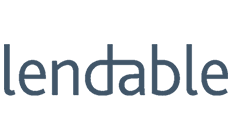Our Lenders
We work with trusted brokers to give you access to a panel of leading lenders well placed to meet your needs at the lowest rates.










Short Term Finance allows you to borrow sums ranging from £1,000 to £100,000 for a short period, whether it is 3 months or 3 years. The idea is that you are using the money for a certain purpose and only need it for a short time, compared to something like a mortgage which can last 25 or 30 years. Perhaps it is to pay for an emergency expense such as household repairs or outstanding debts (personal or payday loans), or maybe it is related to a property which are you looking to purchase under a tight timeframe (such as bridging loans).
At Proper Finance, we work with more than 50 lenders across the UK who are FCA regulated and able to help with kinds of enquiries, incomes and credit backgrounds. To get a free and no obligation quote, simply click on the button below and tell us your requirements in less than 5 minutes and we will present you with the best options or someone from our customer service team will be in touch as soon as possible
Types of Short Term Finance
The options available to prospective short-term borrowers have never been greater. Gone are the days where a desperate borrower’s options were limited to loan sharks and extortionate lenders. The Financial Conduct Authority (FCA) has introduced strict regulations and controls to the lending markets in the UK.
On top of this, the emergence of more short-term finance providers means that there is healthy competition as well as sensible regulation to protect borrowers from previously extortionate lenders and reasonable lenders from unsafe borrowers.
Short Term Loans
Short term loans are financial products designed to provide a relatively small amount of capital over a brief period. They are typically used to address immediate or short-term financial needs.
They have a short repayment period, often ranging from a few weeks to a few months, as well as a quick approval process compared to traditional loans. They are typically used for emergencies, unexpected expenses, or temporary financial gaps.
Personal Loans
Personal loans are unsecured loans that individuals can borrow for various personal reasons, such as debt consolidation, home improvements, or major purchases. They tend to be unsecured, meaning they don’t require collateral.
You can get personal loans with fixed or variable interest rates. The repayment terms typically range from one to seven years (although this can vary) and the loan amount and interest rate depend on the borrower’s creditworthiness.
Bridging Loans
Bridging loans are short-term loans that bridge the financial gap between the purchase of a new property and the sale of an existing one. They help individuals or businesses get funding quickly to carry out a property transaction like buying a house on auction.
This type of financing usually ranges from a few weeks to a few months. It needs to be paid back quickly, usually from the resale of a property bought cheap. They have quick approval and disbursement to meet tight property purchase timelines.
Bridging loans are secured loans, often backed by the property being purchased. They come with higher interest rates than traditional mortgages due to the short-term nature.
Development Loans
Development finance is a type of financing specifically tailored for property developers. These loans fund the acquisition, construction, or renovation of properties for residential, commercial, or industrial purposes.
They are secured loans, typically tied to the development project itself. The funds are used for land acquisition, construction costs, and other development expenses.
Repayment terms may be longer than short-term loans, depending on the project’s timeline. This will vary between lenders, and the interest rates may vary based on the perceived risk of the development project.

Do You Need Security for Short Term Finance?
It depends. The need for security (also known as ‘collateral’) depends on the type of loan and the lender’s requirements as well the borrower’s financial situation, creditworthiness, and willingness to provide collateral for the loan. You can see this summarised in the table below:
| Type of Finance | Security Required? |
|---|---|
| Short Term Loans | It depends. Short-term loans can be either secured or unsecured, depending on the lender and the borrower’s financial situation. |
| Personal Loans | No. Personal loans are not usually unsecured, meaning they do not require collateral. |
| Bridging Loans | Yes. Bridging loans are almost always secured, often using the property being purchased as collateral. |
| Development Loans | Yes. Development loans are usually secured and tied to the development project, using the property or project as collateral. |
How Much Can I Borrow With Short Term Finance?
The amount you can borrow with short-term finance varies depending on the lender, your financial situation, and the specific terms of the loan. Short-term loans are usually designed to cover immediate financial needs so the loan amount tends to be lower, but there are always exceptions such as with Bridging Loans which tend to be very high. For example, you could:
-
Borrow £100,000
Where Can I Get Short Term Finance?
While there is an abundance of options when looking for short-term loans and finance arrangements, the underlying principles of borrowing and taking out loans still applies as it always has. These principles include:
- Only using loan providers, be they short-term or otherwise as last resorts
- Trying to find alternative ways to borrow money prior to lenders (this includes asking friends and family)
- Assessing monthly income and outgoings before borrowing
- Only borrowing what is absolutely necessary
- Only borrowing for essentials, such as emergency repairs, bills and expenses, but not luxuries such as holidays or electronics
The beauty of short-term finance is that it is a comfortable medium between the likes of payday loans which tend to not last longer than a month or two and long loans from large providers such banks where the repayments last over a number of years.
Say for example your boiler breaks down in the height of the winter months and you are quoted £1,000 to fix it, but cannot afford to pay for a few months, as your income left over each month after paying for essentials is only £400. Rather than having to suffer until you have saved up the money, you could arrange for a 6-month short term loan of £1,000.
This loan, subject to due diligence and credit checks can see the money in your account within 24 hours, which would allow your boiler to be repaired in a matter of days rather than months. You could start making your repayments immediately and you would have it all paid off in 6 months, with no extra charges or unreasonable interest payments incurred.
What Should I Do When Trying To Find Short Term Finance?
There is no shortage of providers and brokers of short-term finance and therefore there is no need to panic and just go with the first option that you discover.
It is important to take the time to do your homework and your own ‘due diligence’ checks on each potential lender you consider. What would the monthly repayments be? How long will the amount be taken out for? Are they fully regulated by the FCA?
All of these questions and more should be considered before you enter into any short term finance arrangement with any lender or provider. You should also once again reconsider if there are any other routes of finance, short term or otherwise that you can explore and that perhaps won’t necessarily impact your credit score.
The Application Process For Short Term Finance
Any provider of short-term finance will need generic details such as your name, address, current marital status, contact details and more. Lenders may also ask slightly more detailed questions in order to satisfy their criteria and lend you the amount of money you need. They may ask for a breakdown of a number of months’ worth or expenditure and income and this is completely normal.
They will then carry out the relevant checks which, all going well and smoothly will lead to the granting of your loan amount and the money being deposited into your dedicated account, subject to terms and conditions.